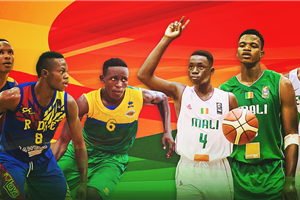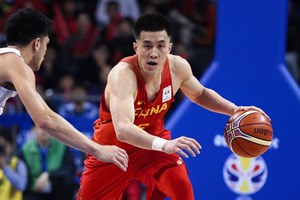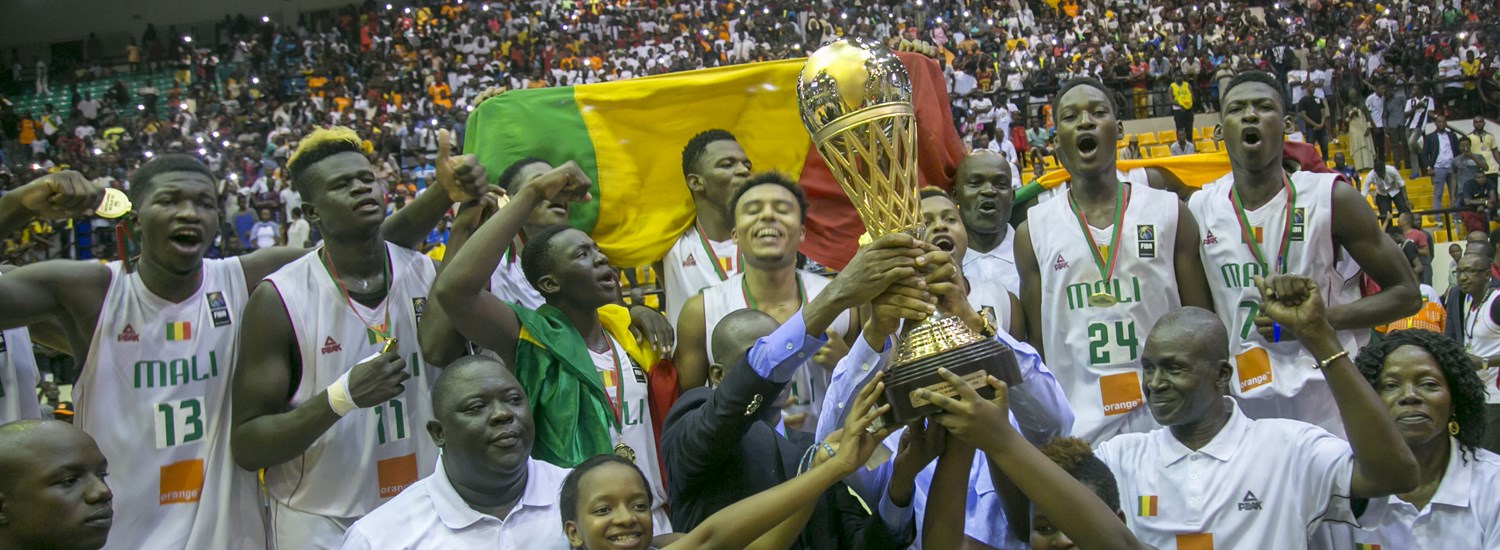
Mali doubles reign over Africa, but Senegal back on the map
REGENSBURG (David Hein's Eye on the Future) - Mali winning the FIBA U18 African Championship 2018 for their first junior continental title was not a surprise. But it was impressive that they took down all the main challengers along the way - even though the fight in the Final showed that the runners-up Senegal are back on the map.
Mali were hosting a youth African event for the second time and this time the home side gave the fans in the capital Bamako plenty of joy by taking the crown, sending a great crowd of some 5,000 into major celebrations - and sending both Mali and Senegal to the FIBA U19 Basketball World Cup 2019.
When you win the title on home soil 🇲🇱🏠🙌🥁😀#FIBAU18Africa @BasketMalien pic.twitter.com/3HjHwSHTPk
— FIBA (@FIBA) September 2, 2018
Mali, who lost to Egypt in the FIBA U16 African Championship 2015 Final in Bamako, knocked off Senegal 78-76 to take their first U18 African title. The trophy comes a summer after Mali climbed to the top of the continent for the first time at the U16 level - meaning they currently hold both youth African crowns.
This was definitely in the coming as Mali have reached the U16 Semi-Finals in four of the five editions, losing in the 2009 and 2015 Finals and taking third in 2011 before finally winning for the first time last summer in Vacoas-Phoenix, Mauritius. At the U18 level, Mali were second in 2006 and have appeared in the last four Semi-Finals with three third-placed finishes and a fourth place in 2012 when they lost to eventual champs Senegal at the final four stage only to see Senegal relinquished the title due to age fraud by some of its players.
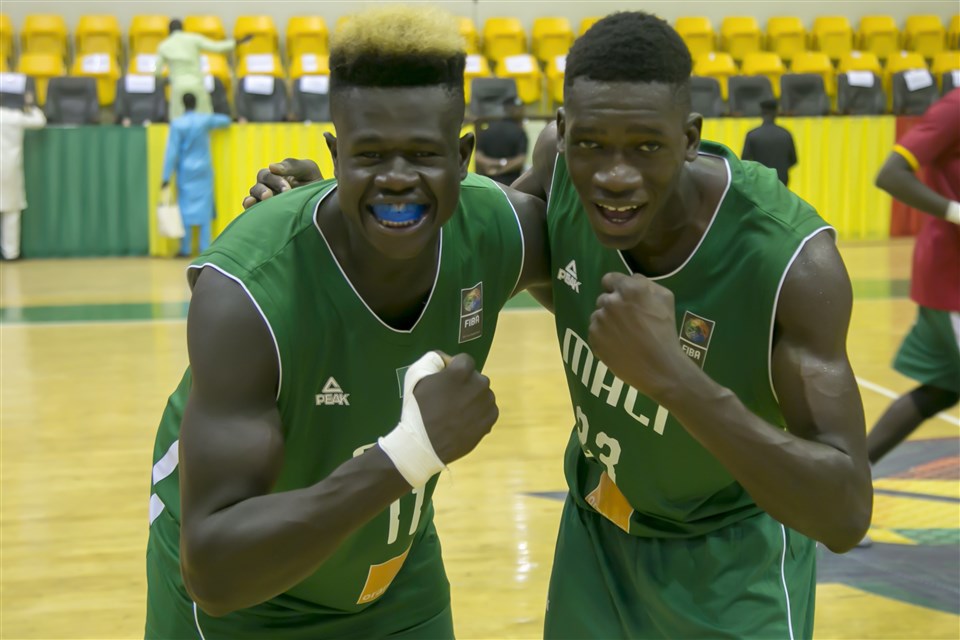 Oumar Ballo (left) and Mohamed Keita (right) teamed up to help Mali dominate through the first seven games of the FIBA U18 African Championship 2018.
Oumar Ballo (left) and Mohamed Keita (right) teamed up to help Mali dominate through the first seven games of the FIBA U18 African Championship 2018.
Playing in front of their home crowd, Mali was a pure force to be reckoned with as they won their first seven games by an average of 47.4 points - including a 46-point win over title contenders Egypt in the group stage. Mali dusted off the 2010 and 2014 runners-up and 2016 Semi-Finalists Tunisia by 51 points in the Quarter-Finals before easing by reigning champions Angola 84-59 in the Semi-Finals - the 59 points being the most Mali had allowed until that point.
One of the big advantages for Mali was loads of big-game experience as their team included Oumar Ballo, Siriman Kanoute and Mohamed Keita, who had just played at the FIBA U17 Basketball World Cup 2018 - with Ballo being named to the All-Star Five despite still being just 15 years old. In addition, Abdoul Karim Coulibaly had played at the U17 World Cup in 2016 and Martin Diakite played in the FIBA U19 Basketball World Cup 2017.
Mali needed all that experience in the U18 African Final as Senegal showed they are back on the scene - having last played an African youth tournament in 2012 - the previous one before that U18 event was the U18 championship in 2008.
While Mali’s place in the FIBA U19 Basketball World Cup 2019 - for which the two finalists qualified - was never really in doubt, the other spot from Africa was expected to be hotly contested between the former U18 champs Angola, the 2008, 2010 and 2014 winners Egypt and returnees Senegal.
Senegal narrowly escaped with an opening day victory over Angola, a one-point win which meant they wouldn't have to face Mali until the Final if both teams won their respective groups - which turned out to be the case. And then Senegal squared off in the Semi-Finals against Egypt in a game that was very indicative of the current state of African basketball.
Senegal have the clear advantage over Egypt in athleticism and that resulted in an 18-4 lead. Egypt were not ready to hand over their top-two place on the continent and fought back into the game with their solid fundamentals. The game was tight throughout the second and third quarters before Egypt were able to build a 10-point lead with less than 5 minutes to play. Senegal came back to even the game and send the game to overtime, where two three-pointers helped them pull out a 91-82 win.
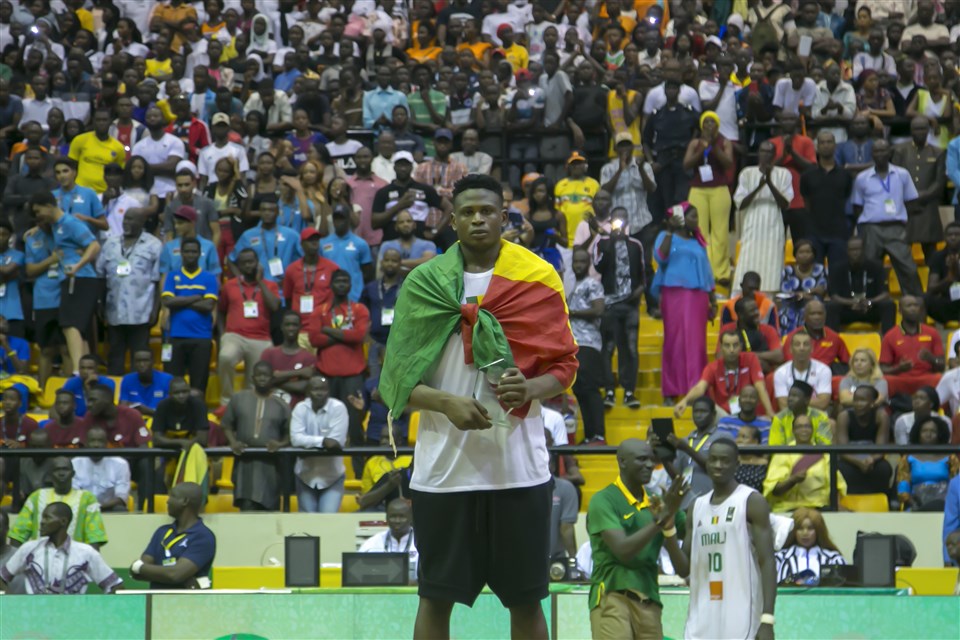 Birame Faye has taken his learning experience from Spain and carried that to an All-Star Five selection at Senegal's first FIBA U18 African Championship since 2012.
Birame Faye has taken his learning experience from Spain and carried that to an All-Star Five selection at Senegal's first FIBA U18 African Championship since 2012.
A look at Senegal’s roster speaks volumes about why it was not really a major surprise that they reached the Final. Five of the Senegalese players are currently playing in Spain: All-Star Five selection Birame Faye with CB Gran Canaria; Amar Sylla of Real Madrid; Mouhamed Sow with Fuenlabrada, Cheikh Diop of Manresa and Khadim Fall with Caceres. There is also Jim Augustin Latyr Gietz Thiam, who was born in Germany and plays with Bayern Munich and was nominated for both the German U16 and U18 teams in the past.
That shows that Senegalese players are working to get the highest possible training, as Gora Camara, who plays with Virtus Bologna in Italy, was also a nominee for the Senegal team in Bamako. In addition, Jean-Jacques Boissy is with the NBA Academy Africa while also being a graduate of the acclaimed SEED Academy in Thies, which has produced many of the country’s players from the U18 team.

At the senior level, Senegal have reached the last three FIBA AfroBasket Semi-Finals, taking third place in 2013 and 2017 and even co-hosted the 2017 edition with Tunisia. If the Senegalese basketball leaders continue to show some commitment to the youth teams, the second-placed showing at the FIBA U18 African Championship 2018 and the berth at the FIBA U19 Basketball World Cup could be followed by more strong results.
But Senegal will definitely have a challenge in taking over the podium from Mali.
David Hein
FIBA
FIBA's columnists write on a wide range of topics relating to basketball that are of interest to them. The opinions they express are their own and in no way reflect those of FIBA.
FIBA takes no responsibility and gives no guarantees, warranties or representations, implied or otherwise, for the content or accuracy of the content and opinion expressed in the above article.



